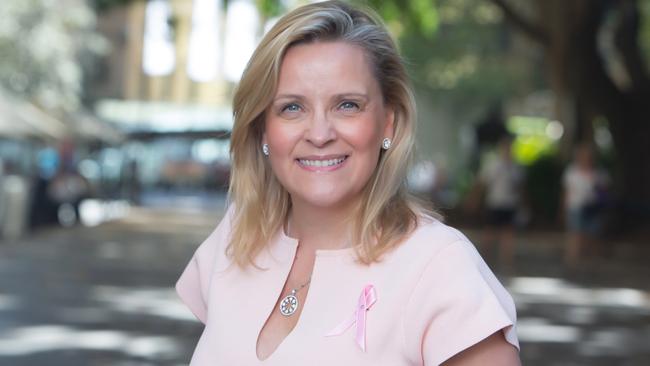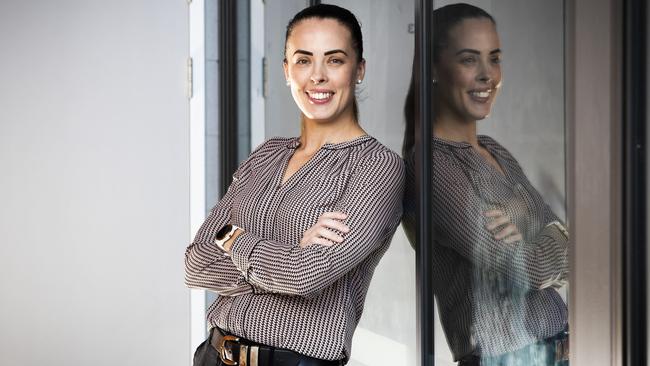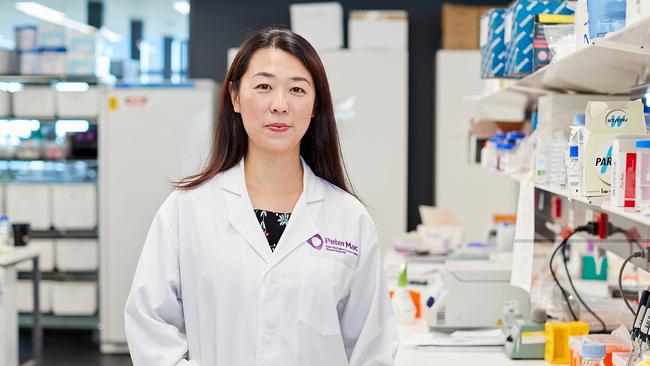Breakthrough as breast cancer becomes our most diagnosed cancer
Breast cancer will overtake prostate cancer as the most commonly diagnosed cancer in Australia this year. But a research breakthrough could slash the death rate.
Illness
Don't miss out on the headlines from Illness. Followed categories will be added to My News.
Exclusive: Breast cancer will overtake prostate cancer as the most commonly diagnosed cancer in Australia this year.
And without more money for research, 30,000 women will die of the cancer in the next decade, new calculations from the National Breast Cancer Foundation show.
Worse still, half of those women won’t even survive five years after diagnosis.
National Breast Cancer Foundation CEO Professor Sarah Hosking said there had been a steep rise in the number of breast cancers diagnosed every year and it was now the most diagnosed cancer in Australia.
Cancer Australia data shows there will be 19,974 breast cancer diagnosed in 2020 compared to 16,741 cases of prostate cancer.
In 2016 prostate cancer was the most diagnosed cancer in Australia.

Five year survival rates for breast cancer are high at 91 per cent, but nine per cent of patients or 3000 people per year don’t make it to five years.
“There are certain types of situations, certain types of cancers that do less well — triple negative metastatic treatments are really lacking, and some patients have treatment resistance, as well,” Prof. Hosking said.
The foundation has invested $181 million in 557 projects to date and hopes to raise $100 million dollars to invest in new research in coming years.

Gold Coast policewoman Cushla Maker was diagnosed with breast cancer at age 29 just as she was about to start IVF to have her first child.
She had a lumpectomy and radiotherapy but chose not to have chemotherapy because she feared it may affect her chance to have children.
A couple of her friends had also been diagnosed with breast cancer in their early 30s.
“They’ve all got young families so you know you never want to say someone, especially with young kids not be able to make a past the five year stage,” she said.
“Just being young and that you feel like you, you want to live a bit longer you know.”
After multiple failed attempts to have a child through IVF, Ms Maker, now 33, is hoping to have a child through surrogacy.
Despite the grisly cancer outlook, Dr Clare Slaney from the Peter MacCallum Cancer Centre is pushing ahead with potentially game-changing research.
She believes her team has found a way to make breakthrough CAR-T therapy work for breast cancer patients.
The revolutionary therapy — which is yet to be tested on animals or humans — involves extracting a patient’s immune cells and re-engineering them to recognise the cancer, before infusing them back into the body.
The therapy has “cured” blood cancers but to date has not worked on solid tumours.
Dr Slaney’s team has created a new protein, called BEAT which links CAR- T cells to the rest of the patient’s immune system.
“The idea is it will amplify the impact of CAR-T cells and raise additional, and even more powerful immunity against the cancer,” she told News Corp.

The therapy dramatically killed all cancer cells in a test tube overnight.
“Within 16 hours, so basically before going home you’re just putting everything together in a petri dish thing in the morning you come here, there’s just no cancer cells at, it all happens overnight,” she said.
Originally published as Breakthrough as breast cancer becomes our most diagnosed cancer

